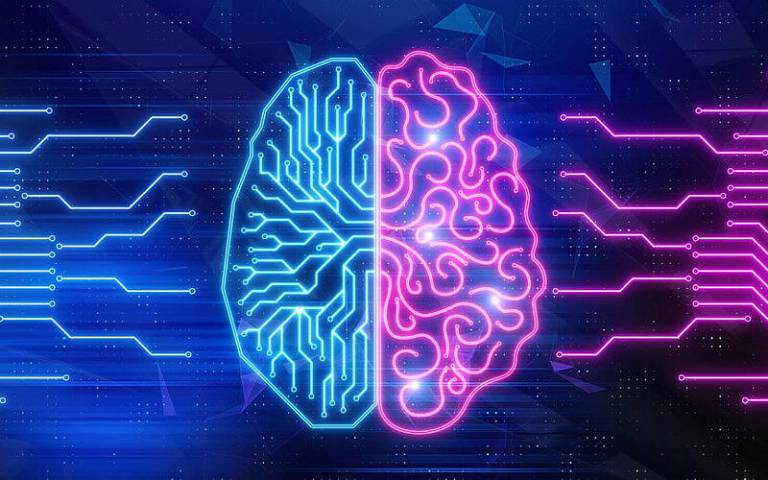UCL NeuroAI Talk Series | Alexander Terenin
14 July 2021, 2:00 pm–3:00 pm

Event Information
Open to
- All
Availability
- Yes
Organiser
-
Sabrina Moxom – SLMS Research Coordination Office
About the event
NeuroAI is a series of themed talks organised by the UCL NeuroAI community. This month's speaker is Alexander Terenin (Imperial College London).
Talk title: Physically Structured Neural Networks for Smooth and Contact Dynamics
Abstract: A neural network’s architecture encodes key information and inductive biases that are used to guide its predictions. In this talk, we discuss recent work which leverages the perspective of neural ordinary differential equations to design network architectures that encode the structures of classical mechanics. We examine the cases of both smooth dynamics and non-smooth contact dynamics. The architectures obtained are easy to understand, show excellent performance and data-efficiency on simple benchmark tasks, and are a promising emerging tool for use in robot learning and related areas.
All other upcoming talks can be found here.
About NeuroAI
The last decade has seen phenomenal advances in the field of machine learning (AI) (e.g. deep learning, reinforcement learning). Such is the change that no area of science can afford to ignore it, least of all neuroscience.
Crucially, AI shares a common lineage with neuroscience, and provides a means to emulate neural functions and the circuits supporting them, delivering a normative understanding of the brain and cognition (e.g. Banino et al., 2018; Stringer et al. 2019; Dabney et al., 2020).
Equally AI tools provide a means to discover, segment, and track distinct neural and behavioural states (e.g. Mathis et al., 2018; Frey et al., 2019) - yielding more efficient experiments and accelerating the pace of discovery. In turn, this understanding feeds back into the design of more effective AI architectures and models (e.g. Sabour et al., 2017; Stringer et al, 2019, Dabney et al., 2020).
Essentially, AI problems posed in neuroscience both require and inspire further advances in AI.
About the Speaker
Alexander Terenin
at Imperial College London
I'm a researcher working on statistical machine learning and artificial intelligence. My work focuses on data-efficient and compute-efficient learning and decision-making. The brain evolved to process information efficiently: therefore, so should our algorithms.
More about Alexander Terenin Close
Close

